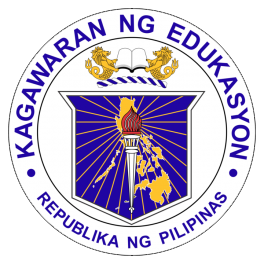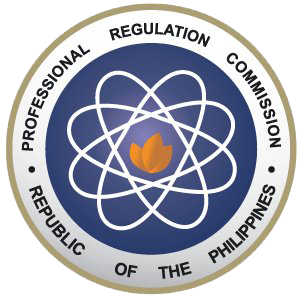Register of Qualifications
Search Qualifications
| Qualification Code | Qualifications | Descriptor | Level | Authority Granting Agency |
Instrument (PSG/CMO/Board Resolution) |
Date of Authorization |
|---|---|---|---|---|---|---|
| 60411 | Bachelor of Science in Management Accounting | The program that provides general accounting education to students wanting to pursue a professional career in Management Accounting. As a field of study, MANAGEMENT ACCOUNTING is a profession that involves partnering in management decision-making, devising planning and performance management systems, and providing expertise in financial reporting and control to assist management in the formulation and implementation of an organization’s strategy. Graduates of the program should be able to: 1) Resolve business issues and problems, with a global and strategic perspective using their knowledge and technical proficiency in the areas of financial accounting and reporting, cost accounting and management, management accounting and control, taxation and accounting information systems. 2) Conduct management accounting research through independent studies of relevant literature and appropriate use of accounting theory and methodologies. 3) Employ technology as a business tool in capturing financial and non-financial information, generating reports and making decisions. 4) Apply knowledge and skills that will enable them to successfully respond to various types of assessments (including professional licensure and certifications). 5) Confidently maintain a commitment to good corporate citizenship, social responsibility and ethical practice in performing functions as an accountant. 6) Describe the basic functions of management such as planning, organizing, leading and controlling. 7) Identify and describe the basic concepts that underlie each of the functional areas of business (marketing, finance, human resources management, production and operations management, information technology, and strategic management) and employ these concepts in various business situations. 8) Select the proper decision making tools to critically, analytically and creatively solve problems and drive results. 9) Express clearly and communicate effectively with stakeholders both in oral and written forms. 10) Apply information and communication technology (ICT) skills as required by the business environment. 11) Able to work effectively with other stakeholders and manage conflict in the workplace. 12) Organize and lead groups to plan and implement business related activities. 13) Demonstrate corporate citizenship and social responsibility. 14) Exercise high personal moral and ethical standards. | VI | CHED | CMO No. 28, s. 2017 | 5/9/2017 - Present |
| 60411 | Bachelor of Science in Internal Auditing | The program that provides general accounting education to students wanting to pursue a professional career in Internal Auditing. As a field of study, INTERNAL AUDITING is a profession that enhances and protects organizational value by providing stakeholders with risk-based, objective and reliable assurance, advice and insight. It is an independent, objective assurance and consulting activity designed to add value and improve an organization’s operations. It helps an organization accomplish its objectives by bringing a systematic, disciplined approach to evaluate and improve the effectiveness of risk management, control, and governance processes. Graduates of the program should be able to: 1) Resolve business issues and problems, with a global and strategic perspective using knowledge and technical proficiency in the areas of internal auditing, financial accounting and reporting, cost accounting and management, management accounting and control, taxation and accounting information systems with integrity, objectivity and competence. 2) Conduct internal auditing research through independent studies of relevant literature and appropriate use of internal auditing theory and methodologies. 3) Employ technology as a business tool in capturing financial and non-financial information, generating reports and making decisions. 4) Apply knowledge and skills that successfully respond to various types of assessments (including professional licensure and certifications). 5) Confidently maintain a commitment to good corporate citizenship, social responsibility and ethical practice in performing functions as an internal auditor. 6) Describe the basic functions of management such as planning, organizing, leading and controlling. 7) Identify and describe the basic concepts that underlie each of the functional areas of business (marketing, finance, human resources management, production and operations management, information technology, and strategic management) and employ these concepts in various business situations.8) Select the proper decision making tools to critically, analytically and creatively solve problems and drive results. 9) Express clearly and communicate effectively with stakeholders both in oral and written forms. 10) Apply information and communication technology (ICT) skills as required by the business environment. 11) Work effectively with other stakeholders and manage conflict in the workplace. 12) Organize and lead groups to plan and implement business related activities. 13) Demonstrate corporate citizenship and social responsibility. 14) Exercise high personal moral and ethical standards. | VI | CHED | CMO No. 29, s. 2017 | 5/9/2017 - Present |
| 60411 | Bachelor of Science in Accounting Information System | The program that provides general accounting education to students wanting to pursue a professional career in Accounting Information System. As a field of study, ACCOUNTING INFORMATION SYSTEM is a profession that combines knowledge in business, accounting and computer systems. It involves partnering with management operations and decision-making, by coordinating the information technology activities, providing expertise in choosing the best software or designing and maintaining the overall information system, assessing the integrity of systems, assessing the inefficiencies of a company’s system and recommending improvements to assist management in the formulation and implementation of an organization’s strategy. Graduates of the program should be able to: 1) Resolve business issues and problems, with a global and strategic perspective using their knowledge and technical proficiency in the areas of financial accounting and reporting, cost accounting and management, management accounting and control, taxation and accounting information systems. 2) Conduct Accounting Information System research through independent studies of relevant literature and appropriate use of accounting theory and methodologies. 3) Employ technology as a business tool in capturing financial and non-financial information, generating reports and making decisions. 4) Apply knowledge and skills that will enable them to successfully respond to various types of assessments (including professional licensure and certifications). 5) Confidently maintain a commitment to good corporate citizenship, social responsibility and ethical practice in performing functions as an accountant. 6) Describe the basic functions of management such as planning, organizing, leading and controlling. 7) Identify and describe the basic concepts that underlie each of the functional areas of business (marketing, finance, human resources management, production and operations management, information technology, and strategic management) and employ these concepts in various business situations. 8) Select the proper decision making tools to critically, analytically and creatively solve problems and drive results. 9) Express clearly and communicate effectively with stakeholders both in oral and written forms. 10) Apply information and communication technology (ICT) skills as required by the business environment. 11) Work effectively with other stakeholders and manage conflict in the workplace. 12) Organize and lead groups to plan and implement business related activities. 13) Demonstrate corporate citizenship and social responsibility. 14) Exercise high personal moral and ethical standards. | VI | CHED | CMO No. 30, s. 2017 | 5/9/2017 - Present |
| 60413 | Bachelor of Science in Business Administration | The BUSINESS ADMINISTRATION program utilizes an integrated approach to study the interrelationships among the different functional areas of business and examine how the effective orchestration of these different components of business operations can lead to organizational success. It is an interdisciplinary and problem-focused program comprising three integrated elements: core business and management education courses, business administration core and majoor courses. Graduates of the program should be able to: 1) Analyze the business environment for strategic direction. 2) Prepare operational plans. 3) Innovate business ideas based on emerging industry. 4) Manage a strategic business unit for economic sustainability. 5) Conduct business research. 6) Perform the basic functions of management such as planning, organizing, staffing, directing, and controlling. 7) Apply the basic concepts that underlie each of the functional areas of business (marketing, finance, human resources management, production and operations management, information technology, and strategic management) and employ these concepts in various business situations. 8) Select the proper decision making tools to critically, analytically and creatively solve problems and drive results. 9) Express oneself clearly and communicate effectively with stakeholders both in oral and written forms. 10) Apply information and communication technology (ICT) skills as required by the business environment. 11) Work effectively with other stakeholders and manage conflict in the workplace. 12) Plan and implement business related activities. 13) Demonstrate corporate citizenship and social responsibility. 14) Exercise high personal moral and ethical standards. | VI | CHED | CMO No. 17, s. 2017 | 5/9/2017 - Present |
| 60413 | Bachelor of Science in Entrepreneurship | The BACHELOR OF SCIENCE IN ENTREPRENEURSHIP program will help aspiring entrepreneurs to acquire the skills, values and attitudes that will increase their chances of success with the use of classroom training and experiential learning. Graduates of the program should be able to: 1) Conduct a self-assessment to determine level of entrepreneurial competencies. 2) Analyze/Scan the environment to determine business opportunities and develop their profitability profiles from which entrepreneurial ventures can be selected from. 3) Prepare a business plan. 4) Mobilize the necessary human, financial, logistical, and technical resources to implement the business plan. 5) Prepare and comply with requirements for business operation. 6) Operate and manage the enterprise observing good governance and social responsibility. 7) Apply entrepreneurial management in any organization other than own enterprise. 8) Perform the basic functions of management such as planning, organizing, staffing, directing, and controlling.9) Apply the basic concepts that underlie each of the functional areas of business (marketing, finance, human resources management, production and operations management, information technology, and strategic management) and employ these concepts in various business situations. 10) Select the proper decision making tools to critically, analytically and creatively solve problems and drive results.11) Express oneself clearly and communicate effectively with stakeholders both in oral and written forms. 12) Apply information and communication technology (ICT) skills as required by the business environment. 13) Work effectively with other stakeholders and manage conflict in the workplace. 14) Plan and implement business related activities. 15) Demonstrate corporate citizenship and social responsibility. 16) Exercise high personal moral and ethical standards. | VI | CHED | CMO No. 18, s. 2017 | 5/9/2017 - Present |
| 60415 | Bachelor of Science in Office Administration | The BACHELOR OF SCIENCE IN OFFICE ADMINISTRATION program prepares the students for a career in an outcome-focused, technology rich, professional environment. It will thoroughly familiarize the students with current techniques in office practice and procedures, developments in office systems and technology, good team-working and management skills, and application of the principles of good human relations and communications to prepare them to be key players in day-to-day office operations. Graduates of the program should be able to: 1) Provide general administrative and clerical support to high-level executives guided by the Code of Ethics for Office Professionals. 2) Coordinate office management activities. 3) Manage office communications. 4) Organize files, information, and office supplies effectively. 5) Exhibit acceptable human relations skills in a diverse environment. 6) Engage in lifelong learning to keep abreast of the development in the international employment market. 7) Perform the basic functions of management such as planning, organizing, staffing, directing, and controlling. 8) Apply the basic concepts that underlie each of the functional areas of business (marketing, finance, human resources management, production and operations management, information technology, and strategic management) and employ these concepts in various business situations. 9) Use the proper decision making tools to critically, analytically and creatively solve problems and drive results. 10) Express oneself clearly and communicate effectively with stakeholders both in oral and written forms. 11) Apply information and communication technology (ICT) skills as required by the business environment. 12) Work effectively with other stakeholders and manage conflict in the workplace. 13) Plan and implement business related activities. 14) Demonstrate corporate citizenship and social responsibility. 15) Exercise high personal moral and ethical standards. | VI | CHED | CMO No. 19, s. 2017 | 5/9/2017 - Present |
| 61013 | Bachelor of Science in Hospitality Management | The programs related to the fields of HOSPITALITY AND TOURISM EDUCATION will equip students with competencies that are needed to execute operational tasks and management functions in food production (culinary), accommodation, food and beverage service, tourism planning and product development, events planning, transportation services, travel and tour operations and other emerging sectors of hospitality and tourism industry. Graduates of the Hospitality Management program should be able to: 1) Produce food products and services complying with enterprise standards. 2) Apply management skills in F & B service and operations. 3) Perform and provide full guest cycle services for front office. 4) Perform and maintain various housekeeping services for guest and facility operations. 5) Plan and implement a risk management program to provide a safe and secure workplace. 6) Provide food & beverage service and manage the operation seamlessly based on industry standards. In addition, Tourism and Hospitality Disciplines should be able to: 1) Demonstrate knowledge of tourism industry, local tourism products and services. 2) Interpret and apply relevant laws related to tourism industry. 3) Observe and perform risk mitigation activities. 4) Utilize information technology applications for tourism and hospitality. 5) Manage and market a service-oriented business organization. 6) Demonstrate administrative and managerial skills in a service-oriented business organization. 7) Prepare and monitor industry specific financial transactions and reports. 8) Perform human capital development functions of a tourism oriented organization. 9) Utilize various communication channels proficiently in dealing with guests and colleagues. 10) Perform the basic functions of management such as planning, organizing, leading and controlling. 11) Apply the basic concepts that underlie each of the functional areas of business (marketing, finance, human resources management, production and operations management, information technology, and strategic management) and employ these concepts in various business situations. 12) Select the proper decision making tools to critically, analytically and creatively solve problems and drive results. 13) Apply information and communication technology (ICT) skills as required by the business environment. 14) Work effectively with other stakeholders and manage conflict in the workplace. 15) Plan and implement business related activities. 16) Demonstrate corporate citizenship and social responsibility. 17) Exercise high personal moral and ethical standards. | VI | CHED | CMO No. 62, s. 2017 | 7/19/2017 - Present |
| 61015 | Bachelor of Science in Tourism Management | The programs related to the fields of HOSPITALITY AND TOURISM EDUCATION will equip students with competencies that are needed to execute operational tasks and management functions in food production (culinary), accommodation, food and beverage service, tourism planning and product development, events planning, transportation services, travel and tour operations and other emerging sectors of hospitality and tourism industry. Graduates of the Tourism Management program should be able to: 1) Plan, implement and monitor tours and sales activities. 2) Research, plan and conduct various tour guiding activities. 3) Develop appropriate marketing programs and arrange the required travel services. 4) Plan/Organize, implement and evaluate MICE activities. 5) Plan, develop and evaluate tourism sites and attractions. In addition,Tourism and Hospitality Disciplines should be able to: 1) Demonstrate knowledge of tourism industry, local tourism products and services. 2) Interpret and apply relevant laws related to tourism industry. 3) Observe and perform risk mitigation activities. 4) Utilize information technology applications for tourism and hospitality. 5) Manage and market a service-oriented business organization. 6) Demonstrate administrative and managerial skills in a service-oriented business organization. 7) Prepare and monitor industry specific financial transactions and reports. 8) Perform human capital development functions of a tourism oriented organization. 9) Utilize various communication channels proficiently in dealing with guests and colleagues. 10) Perform the basic functions of management such as planning, organizing, leading and controlling. 11) Apply the basic concepts that underlie each of the functional areas of business (marketing, finance, human resources management, production and operations management, information technology, and strategic management) and employ these concepts in various business situations.12) Select the proper decision making tools to critically, analytically and creatively solve problems and drive results. 13) Apply information and communication technology (ICT) skills as required by the business environment. 14) Work effectively with other stakeholders and manage conflict in the workplace. 15) Plan and implement business related activities. 16) Demonstrate corporate citizenship and social responsibility. 17) Exercise high personal moral and ethical standards. | VI | CHED | CMO No. 62, s. 2017 | 7/19/2017 - Present |
| 60413 | Bachelor of Science in Customs Administration | The CUSTOMS ADMINISTRATION program is an interdisciplinary and critical thinking-focused program composed of the following integrated elements: customs and tariff management with fraud detection and management, international trade and trade facilitation, transportation and supply chain management. Graduates of the program should be able to: 1) Articulate the provisions of tariff and customs laws, rules and regulations. 2) Perform the different customs valuation and classification concepts and applications, systems, techniques and remedies. 3) Detect and prevent fraud in the area of occupation. 4) Interpret the provisions of international trade laws and agreements. 5) Demonstrate self-confidence in dealing with clients, fellow professionals and the various government agencies. 6) Innovate supply chain and risk management approaches and methodologies using technology. 7) Introduce new ideas for the improvement of the practice of the profession as customs broker and as a supply chain practitioner. 8) Perform the basic functions of management such as planning, organizing, staffing, directing, leading and controlling. 9) Apply the basic concepts that underlie each of the functional areas of business (marketing, accounting, finance, human resources management, production and operations management, information technology, and strategic management) and apply these concepts to business situations. 10) Select the proper decision tools to critically, analytically and creatively solve problems and drive results. 11) Express oneself clearly and communicate effectively with stakeholders both orally and written forms. 12) Apply information and communication technology (ICT) skills as required by the business environment. 13) Work effectively with other stakeholders and manage conflict in the workplace. 14) Plan and implement business related activities. 15) Demonstrate corporate citizenship and social responsibility. 16) Exercise high personal moral and ethical standards. | VI | CHED | ||
| 60421 | Bachelor of Science in Legal Management | The BACHELOR OF LEGAL MANAGEMENT program is an interdisciplinary approach to the study of business, management, law and society. It provides knowledge and skills in the components of law and the legal and regulatory intricacies of the business environment. Graduates of the program should be able to: 1) Apply legal and management principles, theories, and methods to various types of organizations. 2) Analyze, evaluate and solve problems critically using legal and management tools and techniques. 3) Use interpersonal and communication skills effectively. 4) Seek employment and facilitate the integration process in the corporate environment so they can be immediately productive once employed. 5) Make decisions and act within ethical standards and corporate social responsibility. 6) Formulate meaningful contributions as a strategic partner in building the organization to become globally competitive. 7) Define the basic functions of management such as planning, organizing, staffing, directing, leading and controlling. 8) Idenitfy the basic concepts that underlie each of the functional areas of business (marketing, accounting, finance, human resources management, production and operations management, information technology, and strategic management) and apply these concepts to business situations. 9) Apply the proper decision tools to critically, analytically and creatively solve problems and drive results. 10) Communicate effectively with stakeholders both orally and in writing. forms. 11) Effectively and efficiently use information and communication technology (ICT). 12) Work well with others. 13) Manage people and offices. 14) Lead groups and initiate activities. 15) Demonstrate corporate citizenship and social responsibility, and exercise high personal moral and ethical standards. | VI | CHED | ||
| 60421 | Bachelor of Science in Criminology | The field of CRIMINOLOGY is the study of crime and the various agencies of justice as they operate and react to crime, criminals and victims. Graduates of the program should be able to:1) Conduct criminological research on crimes, crime causation, victims, and offenders to include deviant behavior. 2) Internalize the concepts of human rights and victim welfare. 3) Demonstrate competence and broad understanding in law enforcement administration, public safety and criminal justice. 4) Utilize criminalistics or forensic science in the investigation and detection of crime. 5) Apply the principles and jurisprudence of criminal law, evidence and criminal procedure. 6) Ensure offenders' welfare and development for their re-integration to the community. 7) Conduct criminological research and further studies. 8) Ensure public safety and order maintenance. 9) Prevent, suppress and control crime. 10) Investigate and detect crime. 11) Enforce laws, rules and regulations. 12) Protect lives and properties. | VI | CHED | CMO No. 05, s. 2018 | 4/25/2018 - Present |
| 61032 | Bachelor of Science in Industrial Security Management | The BACHELOR OF SCIENCE IN INDUSTRIAL SECURITY MANAGEMENT program is the study and application of the principles of security. It involves the study of the principles and methods of risk management and the applicable interventions that confronts all types of humaan conditions and endeavours. It also includes the study and practice of the means of protecting resources from loss or damage. Graduates of the program should be able to: 1) Conduct cost-effective security survey, audit, and inspection for private and public institutions. 2) Conduct risk and impact analysis and loss event profiling for enterprises and state-owned establishments. 3) Develop and implement competitive intelligence, security and corporate investigation programs. 4) Plan and manage any form of contigencies and emergencies and contain crisis. 5) Formulate and implement security management plans and programs including business continuity plan and management. 6) Organize, develop and operate a security guard force and private detective agency. 7) Conduct criminological research and further studies. 8) Ensure public safety and order maintenance. 9) Prevent, suppress and control crime. 10) Investigate and detect crime. 11) Enforce laws, rules and regulations. 12) Protect lives and properties. 13) Acquire knowledge in Criminal Law, Jurisprudence and Procedures. | VI | CHED | CMO No. 06, s. 2018 | 4/25/2018 - Present |
| 60716 | Bachelor of Science in Aeronautical Engineering | AERONAUTICAL ENGINEERING is a profession that applies the basic principles of science in conjunction with mathematical and advanced computational tools and equipment that will ensure safety in air transportation and solve related problems associated with developing and sustaining civilized life on our planet. Graduates of the program should be able to: 1) Apply knowledge of mathematics and science to solve complex aeronautical engineering problems. 2) Design and conduct experiments as well as to analyze and interpret data and to simulate processes. 3) Design a system, improve, innovate, and to supervise systems or processes to meet desired needs within realistic constraints, in accordance with standards. 4) Function in multi-disciplinary and multi-cultural teams. 5) Identify, formulate, and solve complex aeronautical engineering problems. 6) Understand the professional and ethical responsibility. 7) Communicate effectively aeronautical engineering activities with the engineering community and with society at large. 8) Understand the impact of aeronautical engineering solutions in global, economic, environmental, and ocietal context. 9) Recognize the need for, and engage in life-long learning. 10) Know contemporary issues. 11) Use techniques, skills, and modern engineering tools necessary for aeronautical engineering practice. 12) Know and understand engineering and management principles as a member and leader of a team, and to manage projects in a multidisciplinary environment. 13) Apply acquired aeronautical engineering knowledge and skills for national development. | VI | CHED | CMO No. 93, s. 2017 | 12/4/2017 - Present |
| 60719 | Bachelor of Science in Agricultural and Biosystems Engineering | The BACHELOR OF SCIENCE IN AGRICULTURAL AND BIOSYSTEMS ENGINEERING is designed to produce graduates who possess knowledge, skills, and attitudes in the application of engineering science and designs to the processes and systems involved in the sustainable production, post production, and processing of safe food, feed, fiber, timber, and other agricultural and biological materials; the efficient utilization, conservation, and management of natural and renewable resources; and development of climate change mitigation measures, in order to enhance human health in harmony with the environment. Agricultural and Biosystems (AB) consist of crops, poultry, livestock, fisheries and aquaculture resources, forestry and other plants, new and renewable energy, wastes, natural resources, and climate. Graduates of the program should be able to: 1) Apply knowledge of mathematics and science to solve complex AB engineering problems. 2) Design and conduct experiments, as well as to analyze and interpret data. 3) Design a system, component, or process to meet desired needs within realistic constraints, in accordance with standards. 4) Function in multidisciplinary and multi-cultural teams. 5) Identify, formulate, and solve complex engineering problems. 6) Understand professional and ethical responsibility. 7) Communicate effectively complex AB engineering activities with the engineering community and with society at large. 8) Understand the impact of AB engineering solutions in a global, economic, environmental, and societal context. 9) Recognize the need for, and engage in life-long learning. 10) Know contemporary issues. 11) Use techniques, skills, and modern engineering tools necessary for AB engineering practice. 12) Know and understand engineering and management principles as a member and leader of a team, and to manage projects in a multidisciplinary environment.13) Understand at least one specialized field of ABE practice. | VI | CHED | CMO No. 94, s. 2017 | 12/4/2017 - Present |
| 60722 | Bachelor of Science in Ceramic Engineering | CERAMIC ENGINEERING is the engineering discipline that studies the structure, properties, processing and applications of traditional and advanced inorganic and non-metallic materials, including biomimic materials, that are generally processed at an elevated temperature into useful products. Graduates of the program should be able to: 1) Apply knowledge of mathematics and science to solve complex ceramic engineering problems. 2) Design and conduct experiments in ceramic engineering, as well as to analyze and interpret data. 3) Design a system, component, or process relevant to ceramic engineering practice to meet desired needs within realistic constraints such as economic, 4) Function in multidisciplinary as well as multi-cultural teams. 5) Identify, formulate and solve complex engineering problems in the realm of ceramic engineering. 6) Understand professional and ethical responsibility. 7) Communicate effectively using appropriate media with the engineering community and with society at large. 8) Understand the impact of ceramic engineering solutions in a global, economic, environmental and societal context. 9) Recognize the need for, and engage in life-long learning. 10) Know contemporary issues. 11) Use techniques, skills and modern engineering tools necessary for ceramic engineering practice. 12) Know and understand engineering and management principles as a member and leader in a team, and to manage projects in a multidisciplinary environment. | VI | CHED | CMO No. 90, s. 2017 | 12/4/2017 - Present |
Page 43 of 102






